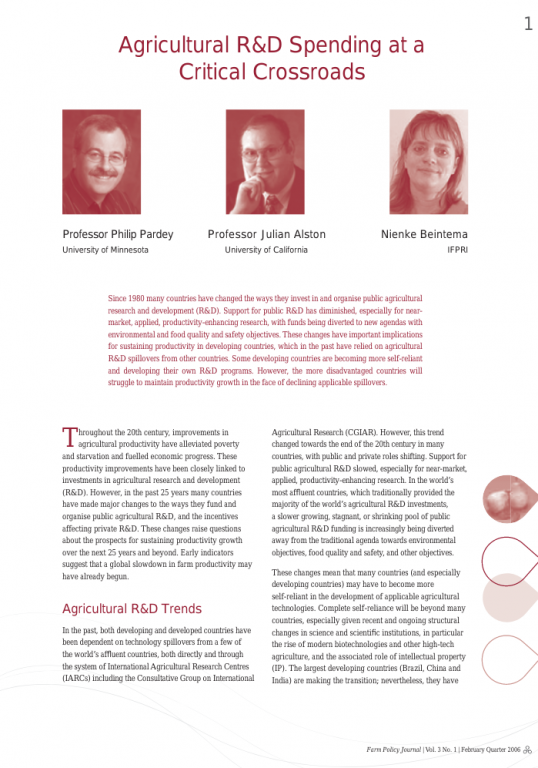Authors:
Pardey, Philip; Alston, Julian; Beintema, Nienke
Year:
2006
Publisher
International Food Policy Research Institute (IFPRI)
Back to:
The balance of global agricultural R&D investments is shifting in ways that will have important long-term consequences, especially for the world’s least affluent countries. The primary reason is changes in supply and demand for agricultural technologies in developed countries, which have been the main producers of agricultural technologies.
These countries seem unlikely to provide the quantities of productivity-enhancing technologies, suitable for adaptation and adoption in food defi cit countries, that they did in the past. This trend has been compounded by a scaling back of developed country support for the international agricultural R&D system, which has already diverted its own attention away from fi nished productivityenhancing technologies, especially for staple food crops.
A shift in R&D agendas is forcing a rethinking of some national and multinational policies. National Governments can take some initiatives in national agricultural R&D
policy, such as: enhancing IP and tailoring the institutional and policy details of IPRs to best fi t local circumstances; increasing the total amount of government funding for their national agricultural R&D systems; introducing institutional arrangements and incentives for private and joint publicprivate funding; and improving the processes by which agricultural R&D resources are administered and allocated.

